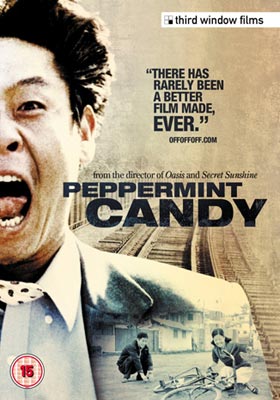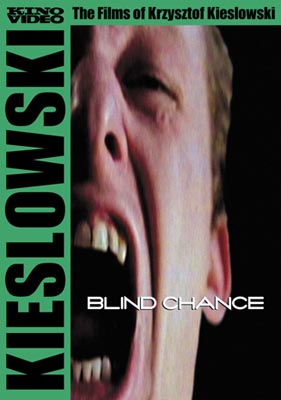 |
|||
|
|
 |
||
SELECTED WRITINGSFILM REVIEW: PEPPERMINT TWISTFrom the June 2013 issue of the American Film Institute's online magazine American Film. by Robert Mugge
Korean novelist and filmmaker Lee Chang-dong has directed five films to date, from GREEN FISH in 1993 to POETRY in 2010, and all have been well received. One of the more fascinating is his 1999 film PEPPERMINT CANDY which was heavily influenced by Polish director Krzysztof Kieslowski's 1981 film BLIND CHANCE (suppressed by Polish authorities until 1987). In Kieslowski's film, which also inspired the three-part structure and themes of chance and fate in German director Tom Tykwer's 1998 RUN LOLA RUN, the young protagonist Witek races to catch a train to Warsaw. Witek does this three times, and his relative success with catching the train each time sends his life in as many different directions. One version has him joining the Communist Party and inadvertently helping to subvert young rebels who are protesting the government's repressive measures under martial law; the second version has him joining the same opposition, though to equally bad effect; and the third has him attempting to stay out of politics altogether. In that third version of his life, Witek successfully graduates from medical school and establishes a good life with a wife and growing family. Yet, along with individuals whom he had come to know in both previous versions of his life, he winds up on a plane to Paris (a symbol of Western democracy) which explodes just after takeoff, an event that suggests Kieslowski's pessimism regarding any options then available for escaping Poland's political morass. The film underlines this point by opening with the searing image of Witek's open-mouthed wail – clearly evoking Edvard Munch's famously disturbing painting "The Scream" – as he sits on the plane which, only at the end of the film, is seen to explode. Unlike Tom Tykwer, Lee Chang-dong does not borrow the structure of Kieslowski's film. For that, he turns to Harold Pinter's 1978 play and 1983 film BETRAYAL, or perhaps even to George S. Kaufman's and Moss Hart's 1934 play "Merrily We Roll Along" (and the 1981 musical adaptation by Stephen Sondheim and George Furth), each of which opens with the end of a story and works its way slowly back to an increasingly ironic beginning. [Interestingly, Christopher Nolan's MEMENTO, released only months after Chang-dong's film, also uses a reverse chronology.] But other key elements of PEPPERMINT CANDY were clearly inspired by Kieslowski's film, from the symbolic use of trains, to main character Yong-ho's desire to "go back" before life went horribly awry, to an open-mouthed scream as his own life comes to a dramatic end, to a story illustrating how authoritarian government, martial law and police brutality had poisoned a nation. For Kieslowski at the time of BLIND CHANCE, the taste of freedom had grown bitter – something long desired but always out of reach. It's a view he repeated in his 1985 film NO END, before largely expelling politics from his remaining work. Years later, in PEPPERMINT CANDY, Lee Chang-dong would present a sweeter view of freedom – something that was fondly remembered but tragically lost. In short, while Chang-dong's film may be consciously indebted to Kieslowski's, it stands on its own... with a peppermint twist. |
|||

